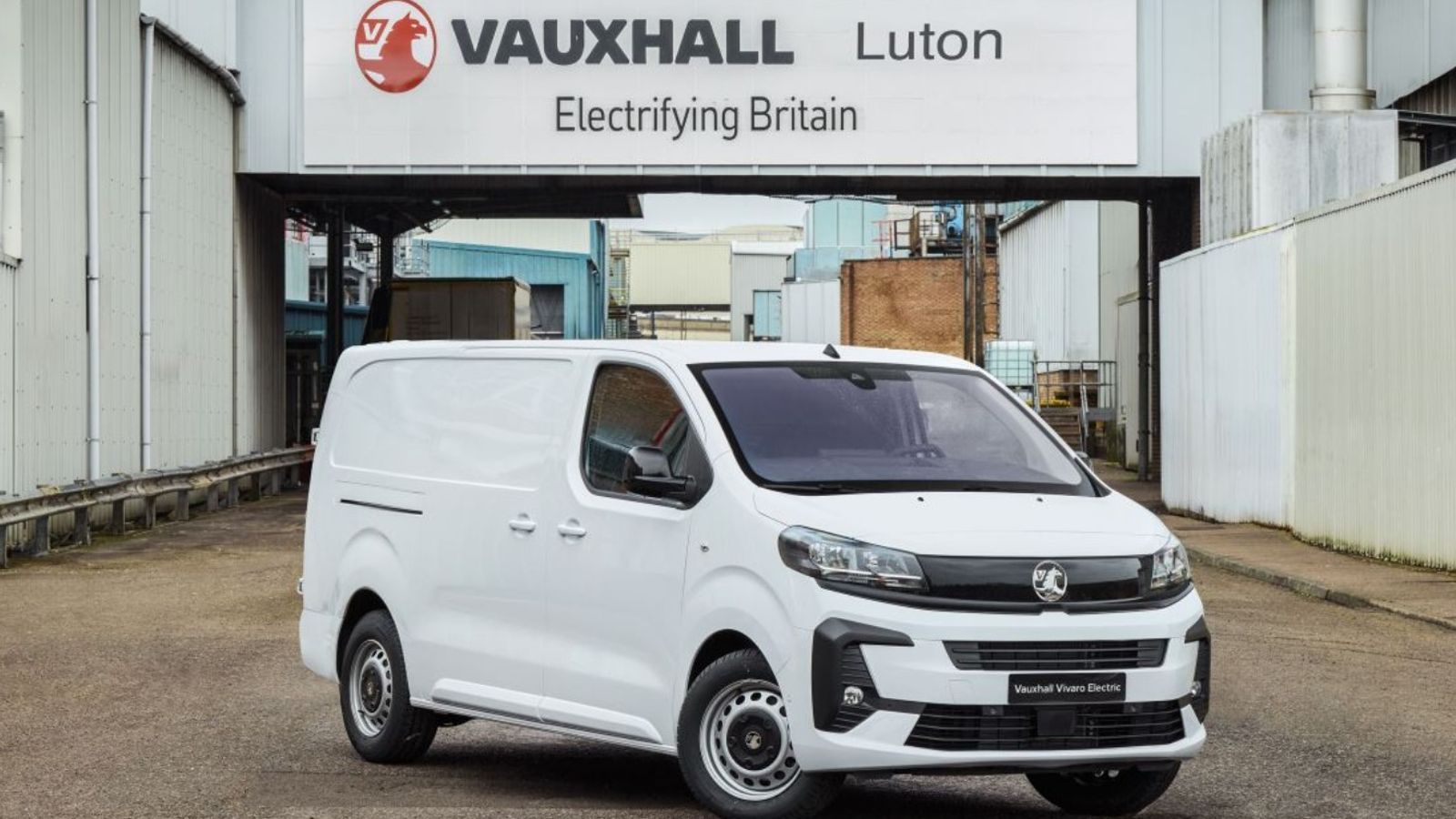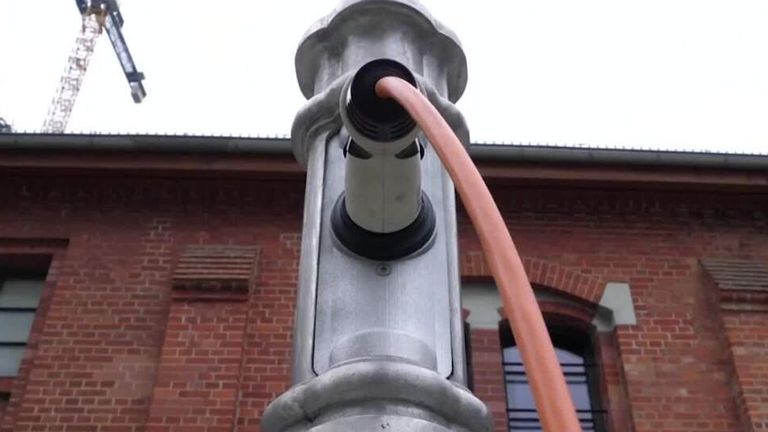Vauxhall’s parent company has secured the future for its Luton plant but demanded more government aid to help drive the transition to electric vehicles.
Stellantis confirmed on Thursday that the Bedfordshire site will produce “limited” volumes of electric vans for five of its group brands from 2025.
They would include the Vauxhall Vivaro Electric, Peugeot E-Expert and Fiat Professional E-Scudo in both right- and left-hand drive versions, it said.
The company added that Luton, which has produced vans for 92 years, would also continue to manufacture some combustion engine-powered models.
Money latest:
Potato shortage fear as supermarket spuds up more than 20% in a month
Business minister Nusrat Ghani welcomed the investment and responded: “This is a further vote of confidence in the UK economy and exciting news that shows our plan for the auto industry is working.”
The announcement by Stellantis follows Nissan‘s confirmation in November last year that it would invest £1.2bn to build two electric car models at its Sunderland plant.
Last summer, Jaguar Land Rover‘s owner revealed plans for a £4bn electric vehicle battery plant in Somerset.
Stellantis, for its part, made its other UK factory at Ellesmere Port the first in the country to go fully electric last year. The site currently produces small vans.
It plans that all the group’s vehicles will be electric-only from 2028.
UK group managing director, Maria Grazia Davino, said: “Whilst this decision demonstrates Stellantis’ confidence in the plant, this… requires the UK government to stimulate more demand in the electric vehicle market and support manufacturers that invest in the UK for a sustainable transition.”
The remarks will be seen as a rebuke over the decision by Rishi Sunak last September to delay the ban on the sale of new vehicles powered by petrol and diesel beyond 2030.
The prime minister said he wanted to shield the public from “unacceptable costs” despite acknowledging the urgency around the need for the shift to help tackle the climate crisis emergency.
Electric vehicle sales have been stalling across Europe due to cost of living pressures.
The auto industry has demanded more aid to support the transition including government subsidies to aid consumer and business purchases and investment in the charging network.
Stellantis did not put a cost on the size of its investment.
Mark Noble, the Luton plant’s director, said of the decision: “Following the transformation of our Ellesmere Port facility to produce all-electric compact vans, I’m pleased to announce that we will commence limited production of our medium electric van in Luton from next year, when the first customer vehicles will roll off the production line.”


